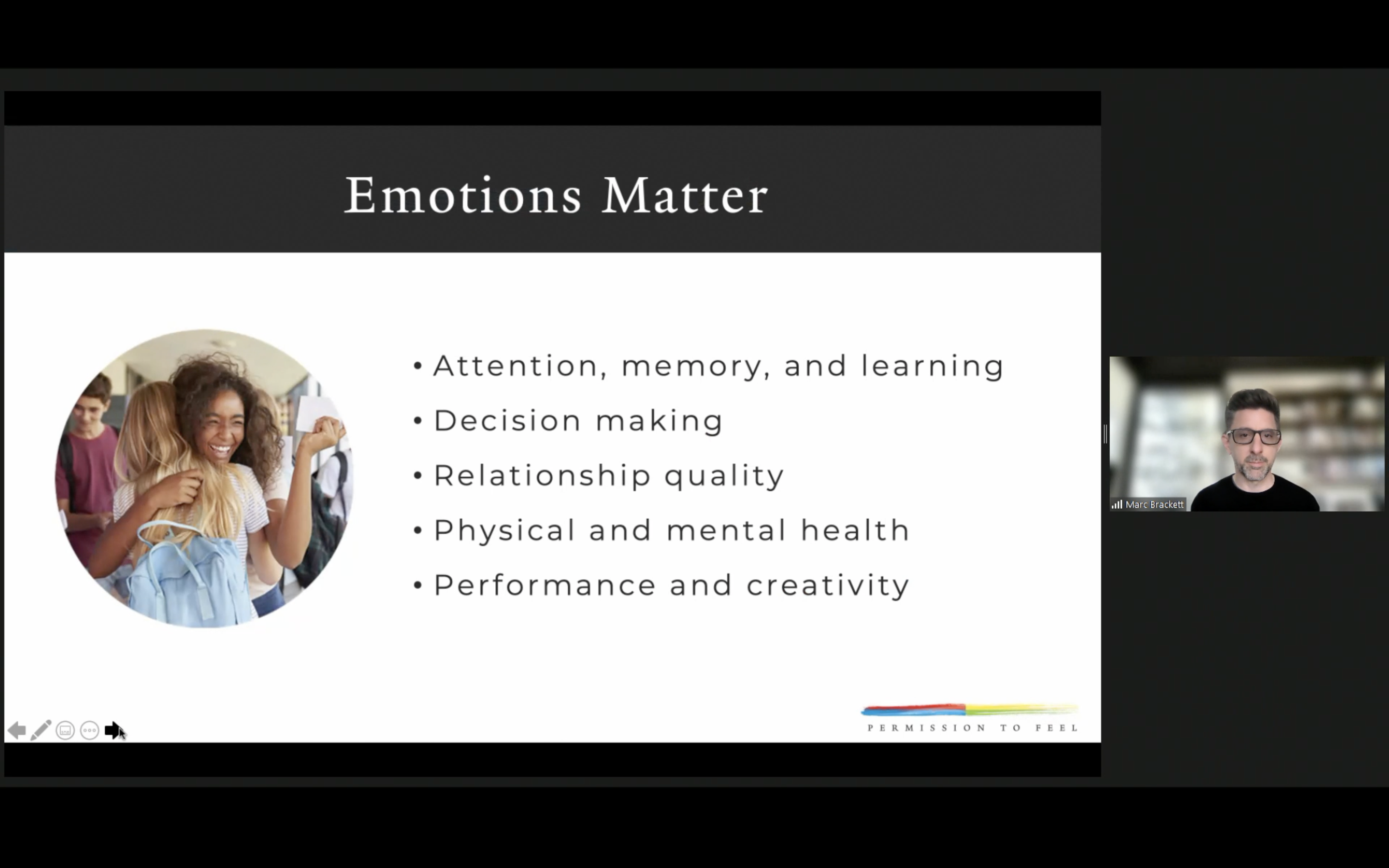By Adriana Rozas Rivera |
Emotions matter. That was Marc Brackett’s message at the “Social Emotional Learning During a Pandemic: From Theory to Practice to Systemic Change” seminar held Friday, Feb. 19, as part of AASA’s national conference.
Brackett, director of the Yale Center for Emotional Intelligence and author of Permission to Feel, specializes in emotional intelligence in learning and emotional intelligence training on children and adult health. He said emotions can affect attention, memory, decision making, learning, relationships, physical and mental health, among others.
 Brackett argues that his research shows the importance of teaching social emotional learning in school districts to educators and students. Social emotional learning is about acknowledging and accepting all emotions and learning how to manage them, which will affect learning environments.
Brackett argues that his research shows the importance of teaching social emotional learning in school districts to educators and students. Social emotional learning is about acknowledging and accepting all emotions and learning how to manage them, which will affect learning environments.
SEL needs to be ingrained in each school’s curriculum through direct instruction, instead of being “added on” to other subjects, he said.
“If you're not doing prevention work in building the skills from preschool to elementary and middle and high school, how are we going to build those protective factors?” Brackett said.
Brackett listed seven strategies to help regulate your emotions. These include permission to feel, biological self-care, physiological regulation, psychological self-care, healthy relationships, managing your thoughts and managing your life smartly.
District administrators must focus on systemic changes that can enhance SEL. “Quick fix mentalities” will not provide the same results, Brackett said.
To achieve real change, everyone should have equal permission to feel, which requires a structural shift.
“We know that in America people who are white have anger privilege,” Brackett said. “It's allowable to be angry. The implications are quite different if you're a white male than if you're a Black male in terms of expressing the same degree of an emotion and I think what that tells us is that in our society at least that the focus can’t just be on teaching people, individuals, children, teachers’ skills. It's gotta be on shifting the entire system.”
SEL can affect multiple aspects of the learning environment—even grading. In a recent study Brackett conducted with middle school teachers on decision making, they randomly assigned different moods to each teacher. They asked teachers to think of a great day and a rough day, and then gave the teachers the same essay to grade.
“We found one to two full grade differences in the way each teacher evaluated the essay based on the mood they were in,” Brackett said.
Emotions unconsciously drive the way someone sees and evaluates the world, he added.
(Adriana Rozas Rivera is a graduate student at Syracuse University’s S.I. Newhouse School of Public Communications in Syracuse, N.Y., and an intern with AASA’s Conference Daily Online.)
